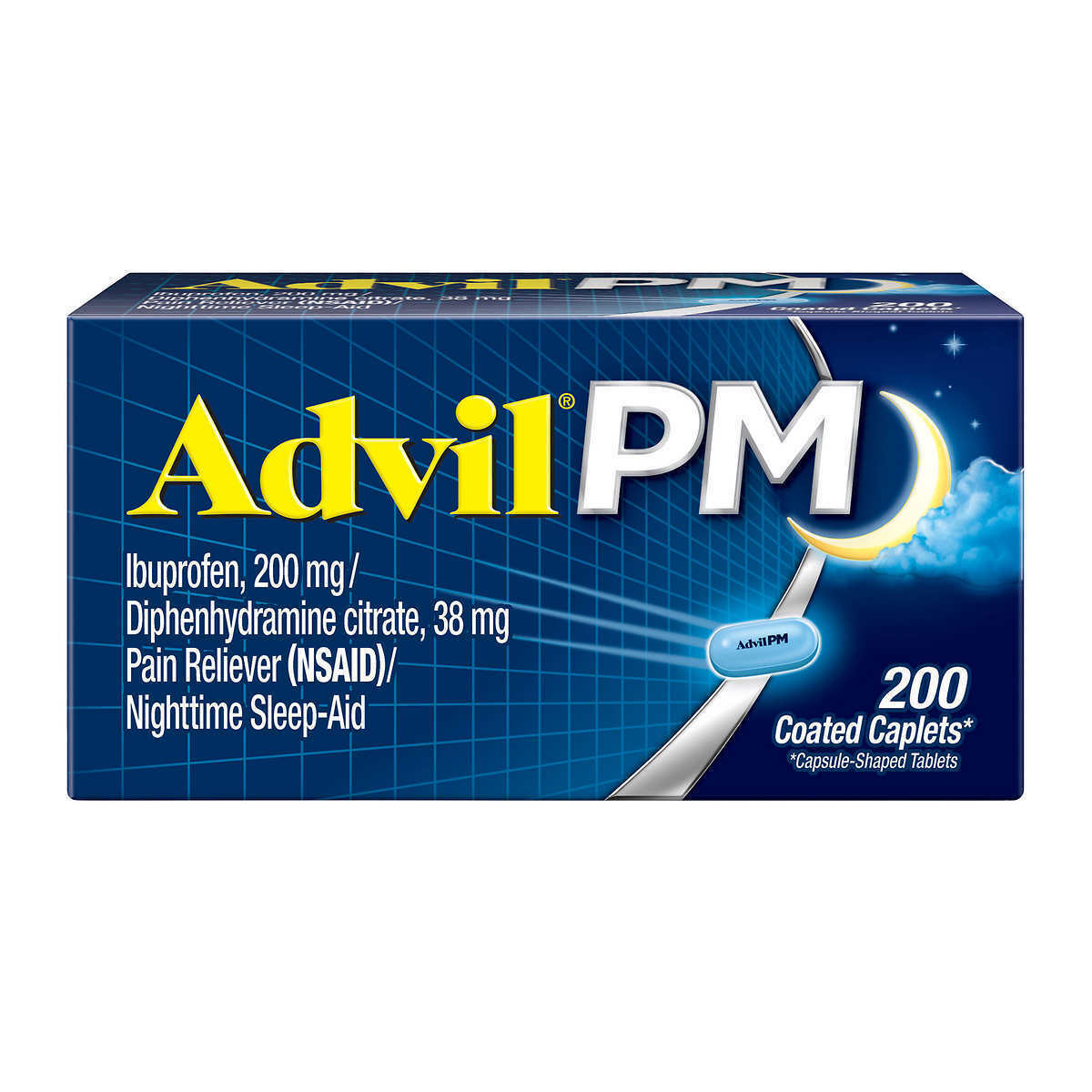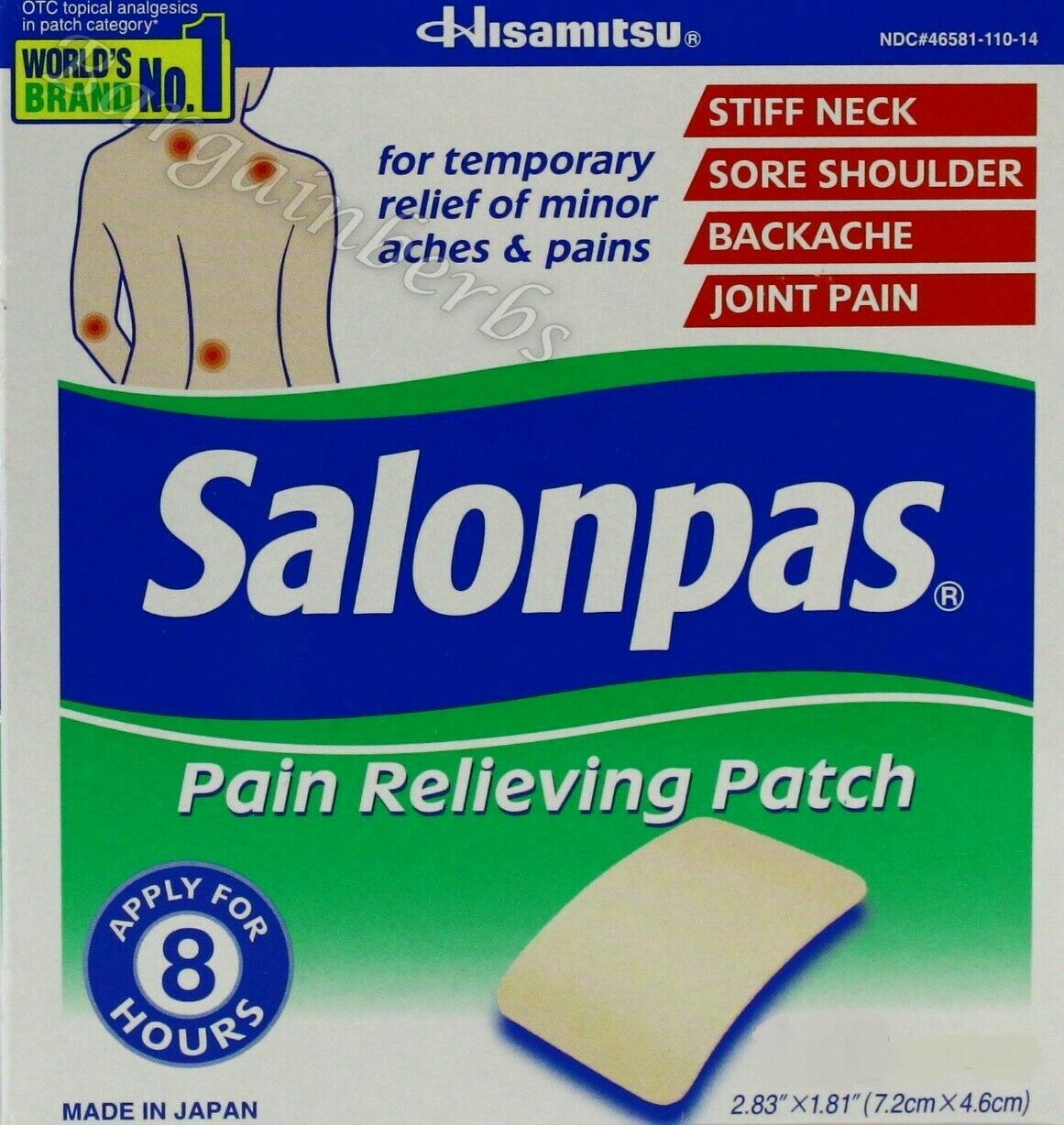-40%
Advil PM Ibuprofen 200mg Pain Reliever Nighttime Sleep Aid 200 Coated Caplets
$ 11.87
- Description
- Size Guide
Description
OVERVIEWWhy Advil®PM?
When pain keeps you up at night, say goodnight to pain with Advil®PM. Advil®PM combines the #1 selling pain reliever (Ibuprofen) with the #1 selling sleep medicine (Diphenhydramine)
**
to help you sleep the whole night.
>>
**
Among OTC brands
>>
Based on 7 hours of sleep which is the
minimum recommended amount for adults
Advil®PM is the best choice because 73% of sleep aid users suffer from physical causes of sleeplessness, like pain, that sleep aids alone don’t address.
Advil®PM works in two ways to combat pain and sleeplessness by combining a pain reliever with a non-habit forming sleep aid.
The two active ingredients in Advil®PM have a long history of safe and effective use when used as directed. Ibuprofen has been available for over-the counter use for over 30 years and Diphenhydramine has been used for over 50 years.
5 Sneaky Reasons You’re Not Sleeping Well
How many times have you gotten into bed early, determined to get a good night’s sleep, only to spend hours lying there not sleeping? While sometimes there’s a clear work deadline or family emergency keeping you awake, there may be some not-so-obvious reasons too. Find out why you aren’t sleeping soundly —and how you can finally get a good night’s rest.
1. You bring your phone or tablet to bed. Your habit of scrolling through your feeds or checking e-mail in bed may be disrupting your shut-eye. That’s because those screens emit what’s called blue light. This type of light suppresses melatonin, a hormone that causes you to feel sleepy. Give your devices a curfew, and switch off phone, tablets, and computers at least an hour before bedtime.
2. For dessert, you had a fudgy treat. Chocolate serves up a dose of caffeine: A 1.5-ounce milk-chocolate bar contains nine milligrams (mg) of caffeine, more than double the amount in a cup of decaf coffee. Dark chocolate packs in even more: Half a bar of extra-dark chocolate can contain 35 mg, which is the equivalent of sipping a cup of brewed coffee.
3. You’re battling pain. You’ve got a headache, menstrual cramps, or a muscle or joint ache. Along with draining your day, that pain can wreak havoc on your sleep. Research shows that pain is linked to poor sleep, middle-of-the-night waking, and less shut-eye overall. For pain associated with sleeplessness, consider trying a nighttime pain reliever such as Advil®PM (to help you get a better night’s sleep). Bonus: one study showed that getting more sleep may help lower your sensitivity to pain.
4. You had a glass of wine or nightcap before bed. While alcohol makes you drowsy, it prevents you from getting as much restorative sleep through the night. The result: You feel sluggish instead of refreshed in the morning. Alcohol is also a diuretic, which means that you may need to make more trips to the bathroom throughout the night. Make your last call a few hours before turning in, and you’ll get more rest.
5. You hit the gym at 8 p.m. A sweaty workout raises your core body temperature for a few hours. This can keep some people from falling asleep easily. Try exercising in the afternoon or morning. According to one study, people slept the most soundly when they worked out at 7 a.m. Only have time in the evening? Stick with a gentle routine, such as yoga or stretching.
Impact of Sleep Problems
A poll by the National Sleep Foundation found that difficulty sleeping interferes with everyday life more among people with fleeting and minor pain than for those without pain.* Here’s how:
• Nearly 1/3 of people said they experienced difficulties in their relationships, 10% more than those without pain.
• 4 out of every 10 people suffering sleeplessness with minor pain said their mood was affected.
• Daily activities were impacted 2x more for people with pain than those without pain.
• 1/3 of people said their sleeplessness with minor pain has interfered with their work.
*Source: National Sleep Foundation, 2015 Sleep in America Poll: Sleep and Pain










